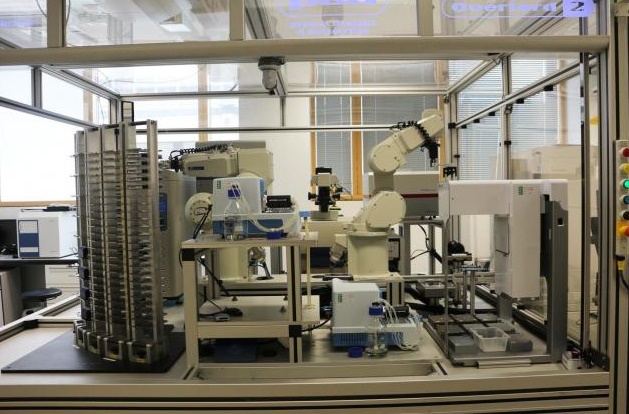For a long time now, malaria has given medical professionals and researchers headaches. This is partly because resistance to drugs used to treat the disease is increasing. The disease kills about 0.5 million people every year. Majority of the deaths occur in poor parts of Africa. However, there may be a ray in the cloud after an AI robot assisted researchers to find that triclosan, a common ingredient in toothpaste can be developed to fight drug-resistant strains of malaria.

The researchers from Cambridge University found that triclosan has the potential to interrupt malaria infections at the liver and blood stages.
Malaria parasites move to the liver once they have been introduced to the host via a mosquito bite.
In the liver, they mature and reproduce, after which they move into red blood cells.
In the red blood cells, they multiply and spread throughout the body, leading to fatal complications.
Triclosan inhibits growth of malaria parasites at the blood stage by halting the activity of the enoyl reductase enzyme (ENR).
ENR is involved in the production of fatty acids.
Leading researchers in the Cambridge University study, Elizabeth Bilsan and Steve Oliver, have lately discovered that triclosan can also inhibit DHFR.
DHFR is an enzyme of the malaria parasite which the antimalarial drug pyrimethamine targets. This is the drug that malaria parasites are becoming increasingly resistant to.
The researchers found out that triclosan can target and act on DHFR, even in parasites that are resistant to pyrimethamine.
[irp]
Eve, the AI robot, automated and sped up the process of developing and testing hypotheses, carrying out experiments, interpreting results, among other tasks.
Leave a Comment